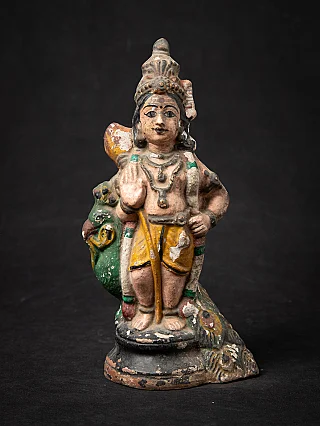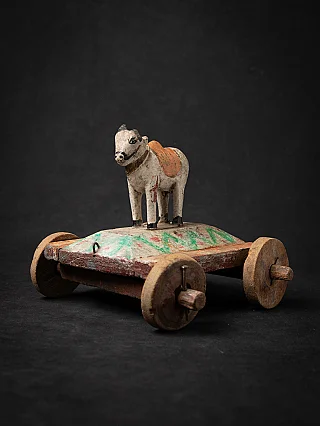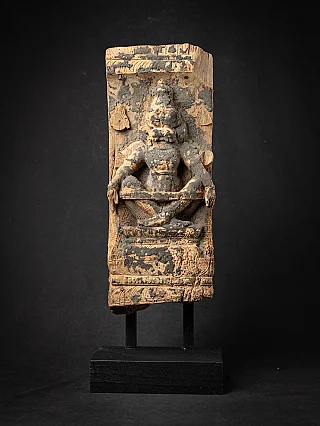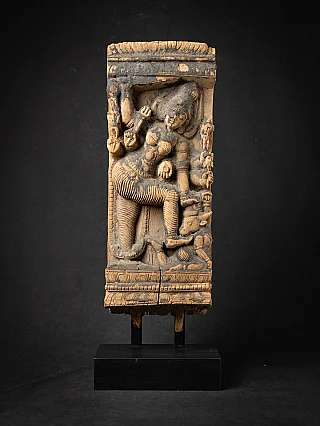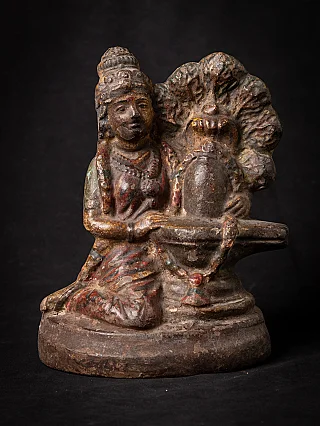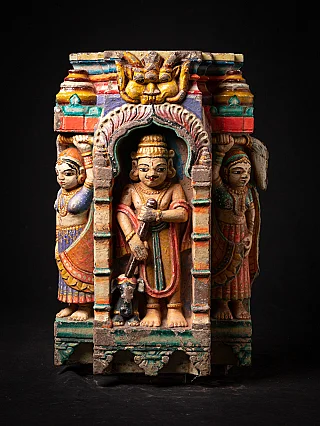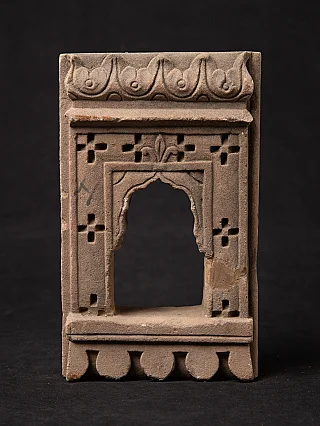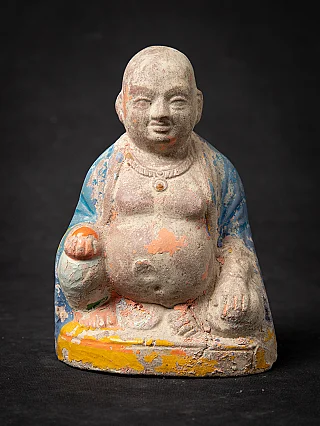Kuber: The God Of Wealth
Author : Peter Vredeveld

In Hindu mythology, Kuber, revered as the god of wealth and prosperity, occupies a significant position among the pantheon of Hindu deities. His divine presence symbolizes abundance, luxury, and the blessings of material prosperity. Let's explore the multifaceted persona of Kuber, delving into his mythology, iconography, significance, and rituals associated with his worship.
Iconography and Symbolism

Kuber's iconic representation is imbued with symbolism, reflecting his divine attributes and auspicious significance. He is often depicted as a stout figure with a large belly, symbolizing wealth and abundance. His complexion resembles that of lotus leaves, radiating purity and prosperity.
The physical features of Kuber are described in ancient texts as peculiar and distinctive. He is said to possess three legs, eight teeth, and an elephant's trunk, symbolizing strength, longevity, and auspiciousness. Adorned with opulent jewels and ornaments, Kuber exudes regal splendor and magnificence.
In his hands, Kuber holds various auspicious symbols of wealth and prosperity. A money bag and a club signify his role as the guardian of treasures and the protector of wealth. He also holds a jar and a bowl overflowing with precious gems and jewels, symbolizing abundance and prosperity.
In Tibetan Buddhism, Kuber is often depicted alongside a mongoose, symbolizing wealth and fortune. The presence of the mongoose signifies Kuber's benevolence and generosity in bestowing material blessings upon his devotees.
Key Features of Kuber's appearance:
- Stout figure with a large belly: Symbolizes wealth and abundance.
- Complexion resembling lotus leaves: Radiates purity and prosperity.
- Three legs, eight teeth, and an elephant's trunk Symbolize strength, longevity, and auspiciousness.
- Adorned with opulent jewels and ornaments, it Exudes regal splendor and magnificence.
- It holds various auspicious symbols:
- Money bag and a club: Signify his role as the guardian of treasures and protector of wealth.
- Jar and a bowl overflowing with precious gems and jewels: Symbolize abundance and prosperity.
- Depicted alongside a mongoose in Tibetan Buddhism, it symbolizes wealth and fortune, signifying Kuber's benevolence and generosity in bestowing material blessings upon his devotees.
Mythological Origins
The origins of Kuber trace back to ancient Hindu scriptures, where he is depicted as the lord of Yakshas, semi-divine beings associated with wealth and abundance. According to Hindu mythology, Kuber resides in the celestial city of Alakapuri, also known as Alaka or Alaka-pura, where he reigns supreme as the god-king.
Legends surrounding Kuber often highlight his ascent from mortal existence to divine status. One such tale recounts Kuber's transformation from an ordinary man consumed by greed to the revered deity of wealth. Despite his mortal flaws, Kuber's unwavering devotion and eventual divine elevation underscore his significance as a benefactor of prosperity and abundance.
Etymology and Epithets
Kuber is known by various epithets that reflect his divine attributes and roles. The name "Kuber" itself is derived from Sanskrit, meaning "the one who is ugly" or "the deformed one." This epithet underscores Kuber's unconventional appearance, characterized by his peculiar physical features.
Additionally, Kuber is revered by titles such as Vitteshwar or Vitteswar, signifying "lord of wealth." These epithets emphasize Kuber's role as the custodian of riches and the bestower of prosperity upon his devotees.
Family and Consorts
In Hindu mythology, Kuber's familial relationships play a significant role in shaping his narrative and influence. According to ancient texts, Kuber is often depicted alongside his consort, Kamini or Nalayani, symbolizing the divine union of wealth and fertility. Together, they embody the principles of abundance, prosperity, and domestic bliss.
However, Kuber's family extends beyond his consort, encompassing notable figures such as his half-brother Ravana, the infamous antagonist of the epic Ramayana. According to Hindu scriptures, Ravana, the demon king of Lanka, is the son of Vishrava, making him Kuber's half-brother. This familial connection adds complexity to Kuber's story, as his relationship with Ravana is characterized by kinship and rivalry.
The legendary city of Lanka, ruled by Ravana, is prominent in Kuber's mythology. Initially, Kuber is believed to have been the ruler of Lanka before being overthrown by Ravana, who seized control of the kingdom through force. Despite losing Lanka to his half-brother, Kuber's association with the city remains significant, as it serves as a backdrop for pivotal events in Hindu mythology.
Among Ravana's siblings, Kumbhakarna is a formidable figure closely associated with Kuber. Kumbhakarna, known for his immense strength and appetite, is often portrayed as a loyal ally of his brother Ravana. It is said that Kumbhakarna's allegiance to Ravana also extends to Kuber, highlighting the intricate familial ties within the demon lineage.
Furthermore, Kuber is believed to have four sons, each representing different facets of wealth and fortune. Their names—Manibandha, Virupaksha, Vasupaksha, and Rupena—underscore Kuber's lineage as the progenitor of prosperity and abundance. These sons, often depicted as divine beings in their own right, contribute to the rich tapestry of Kuber's family and legacy.
Role and Significance
As the treasurer of the gods and the god-king of Yakshas, Kuber plays a vital role in Hindu cosmology and religious mythology. He is revered as the custodian of celestial wealth and the bestower of prosperity upon those who worship him with devotion and sincerity.
In addition to his divine role as the god of wealth, Kuber is associated with earthly riches and the subterranean treasures hidden beneath the mountains. His blessings are sought by merchants, traders, and individuals seeking financial stability, success, and abundance in their endeavors.
Moreover, Kuber's significance extends beyond material wealth to encompass spiritual prosperity and inner abundance. By invoking his blessings and cultivating a sense of gratitude and generosity, devotees aspire to attain worldly riches, spiritual fulfillment, and enlightenment.
Worship and Rituals
Although Kuber is not worshipped with physical statues like other Hindu deities, he is revered through various rituals and observances dedicated to wealth and prosperity. One such ritual is Dhanteras or Dhatrayodashi, a festival celebrated in honor of Kuber and the goddess Lakshmi.
During Dhanteras, devotees perform special prayers and rituals to invoke Kuber's blessings and seek his favor for financial success and prosperity. It is customary to purchase gold, silver, or other precious metals as a token of devotion and an offering to Kuber, symbolizing wealth and abundance.
Additionally, devotees may recite sacred hymns, chant mantras, and offer prayers to Kuber in temples dedicated to him or in their homes. By engaging in these rituals with faith and devotion, devotees seek to attract the divine blessings of Kuber and experience prosperity in all aspects of their lives.
Share this page






















